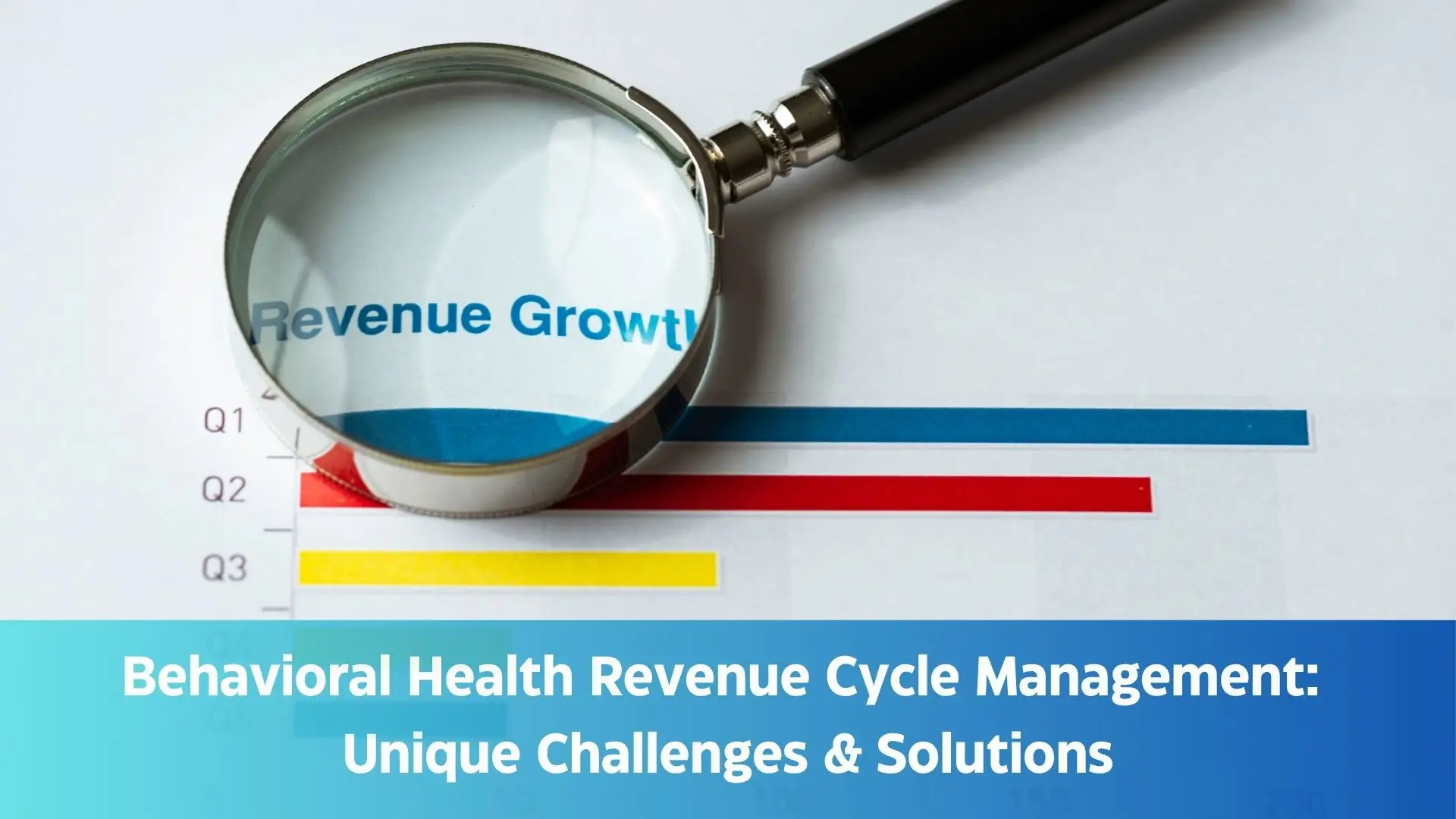Behavioral Health Revenue Cycle Management (RCM) refers to the specialized processes used to manage billing, claims, and reimbursements for mental and behavioral health services. As demand for these services continues to rise, so do the operational and financial complexities that providers must navigate. Unlike general healthcare, behavioral health involves unique challenges such as varying documentation standards, longer treatment cycles, and frequent insurance limitations.
Understanding Behavioral Health Revenue Cycle Management
The behavioral health revenue cycle includes every process involved in the financial journey of a patient. These steps range from appointment scheduling and insurance verification to claims submission and payment posting. What sets this cycle apart is the need for specialized documentation, evolving payer requirements, and the high volume of recurring services that are typical in behavioral health settings.
Every touchpoint in the revenue cycle must align with the specific regulations, treatment models, and billing nuances that are unique to mental and behavioral health services.
Core Components of the Behavioral Health Revenue Cycle
Patient Scheduling and Intake
Insurance Verification and Authorization
Coding and Documentation
Billing and Claims Management
Denial Management and Appeals
Unique Challenges in Behavioral Health RCM
Frequent Policy Changes
Fragmented Payer Rules
High Volume of Recurring Visits
Workforce Shortages and Administrative Strain
Effective Solutions for Behavioral Health Revenue Cycle Challenges
Specialized RCM Services
Our Comprehensive Support Includes:
- Expert coding based on DSM-5 CPT and HCPCS guidelines
- Pre-authorization management to reduce delays and denials
- Real-time claims tracking and performance analytics
- Automated scheduling tools for recurring appointments
- Denial resolution and appeals support
Technology-Driven Efficiency
We integrate advanced billing technologies that streamline workflows and reduce manual errors. These tools help boost collection rates and improve operational accuracy. Our systems are designed to work with most EHRs and practice management platforms. This creates a seamless billing experience.
With intelligent automation and real-time dashboards, behavioral health organizations can track key metrics. These include days in accounts receivable, denial trends, and payer performance.
Dedicated Behavioral Health Team
Unlike general billing services, our team has hands-on experience working with behavioral health clinics, psychiatric practices, and addiction recovery centers. We understand clinical workflows and compliance requirements. We also recognize documentation standards unique to mental healthcare.
This allows us to provide tailored services that reflect the realities of your operations. Our approach helps maintain both clinical integrity and financial performance.
Why Choose Prombs for Behavioral Health Revenue Cycle Management
Prombs provides more than just billing support. We become your strategic partner in driving operational success. With a specialized focus on behavioral health revenue cycle processes, we help your organization navigate payer complexities. We also work to maximize reimbursement and maintain compliance in a rapidly evolving healthcare environment.
Whether you are expanding services, transitioning to telehealth, or struggling with claim denials, our team delivers solutions aligned with your clinical and financial goals.
Explore our full suite of Healthcare Revenue Cycle Management solutions to learn how we can support your growth.
Final Thoughts
Efficient mental health revenue cycle management involves more than claim submission. It is about building a strong financial foundation that supports long-term care delivery. The challenges are real. With the right partner and tools, they are manageable.
At Prombs, we help behavioral health practices take control of their revenue cycles with confidence. From expert coding to denial prevention and data-driven insights, we provide the support you need. This allows you to focus on what matters most, which is delivering quality care to your patients.



